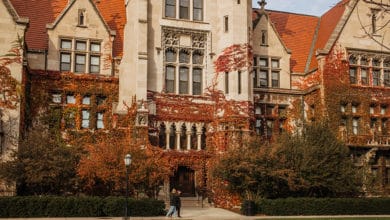“What do you do when you’re the smartest person in your group?” Dr. Forrester Lee, the Director of Multicultural Affairs at the Yale School of Medicine smiled as he posed the thoughtful question. We were a handful of African and Latino American students sitting around a warmly-lit conference room table. The room was silent. I sat inconspicuously among them, a wide-eyed, timid eighteen-year-old black kid. I don’t think I had a clue about the answer, really. I just had some vague sense that the question was more a riddle than a sincere attempt to figure out our individual altruistic tendencies. “Maybe it becomes one’s responsibility to help and guide those around you that are less fortunate”, one student beside me offered.
“You find a smarter group”, Dr. Lee finished.
Racial identity and socioeconomic status permeate many aspects of American society, and thus have real impact on all of us. In K-12 education, staggering research provides evidence that there is a performance gap between the rich and poor. Populations associated with low income areas tend to, historically, be predominantly (but by no means exclusively) African and Latino Americans. This is no secret. As a consequence, many of us who come from these communities can fall into two sequential traps. The first is performance at a mediocre level of achievement, receiving praise from those around us for simply going through the motions of success. Propagated by noble institutions such as affirmative action, it can be easy to lower our own expectations of achievement and settle for less. The second trap for those who do escape the first is to find themselves fighting a chip on their shoulder, seemingly attempting to prove themselves in what can be an unforgiving society. These are the two main challenges of minorities entering medicine.
||Read: Nursing to Medicine||
In his statement, quoted from Les Brown, Dr. Lee was addressing both categorical pitfalls. The first directly, and the second in a bit more indirect fashion.
We celebrate individuals like Jeremy Lin for the same reasons we celebrate a young child from the inner city who has dreams of becoming a doctor. Though they may not perform as a top star or student, it is the subtle purpose to defy expectations that inspires us. Yet in this emotional high we can sometimes do them a disservice. We can come to accept simply “blending in”, rather than true exceptional performance and leadership. Lower standards can be contagious. We’ve all lived them, gotten to know their signs and symptoms. One does not need to search very far to find examples in support of this. Traces of them existed when I persistently groaned about the rigor of my life science courses, or the nagging commentary uttered by my fellow students about clinical examination rubrics.
If the flame that fuels our individual drive for excellence can be dimmed by lukewarm mediocrity, might it be rekindled by fire of outstanding quality? I believe so. Research from the Journal of Experimental Social Psychology confirms this. The study authors showed that performance gaps on exams composed of Graduate Record Examination content between blacks and whites all but disappeared in the period before Obama’s nomination to the period after his acceptance speech. It is very clear. The extent of our abilities is based, at least in part, on our willingness to believe we have them in the first place. Surrounding ourselves and others with positive voices that not only say “yes we can”, but “yes we will” has the power to change us.
||Read: A Future Doctor’s Greatest Struggle||
So, you’ve floated on, travelled the narrow road and worked hard to become the high achieving bright young man or woman you are today. I have found that it is here that true self-examination must occur. The pursuit of excellence can, but not always, be fueled by blind passion. For those rare moments of reflection in the day, month, or year, we can find ourselves faced with what is known as an imposter syndrome. Questions like: “do I truly deserve to be here?” coupled with scarce examples of successful minority role models might lead us to over-compensate, proving to the world, and ultimately, our own selves that we have a right to stake our claim at XYZ School of Medicine. There is no easy way to combat this mindset.
However, I do think it is possible—given that we keep our eyes on the prize. When I was a nursing student, I had few examples of black male nurses to look up to. After school, when I’d arrived to begin working on my unit, I quickly realized I was the only African American male Registered Nurse on a unit employing close to 50 nurses. But when I walked into each patient room—into the room of each grandmother, son, or cousin, I saw that all of my reservations were quickly hushed. This was the only reality I could know professionally. These thoughts had nowhere else to go but out the window.
Of course, there is the small voice that returns to say that I still needed to perform. As with any relationship, a healthy sense of self- trust is foundational.
||Read: End Premed Culture||
When interviewed about his on-stage role in the Elephant Man, Bradley Cooper says it is his belief in his ability to become, rather than act as the elephant man, that lead to his transformation into the character. He says, “If I can’t make the leap of faith…to believe it, the audience won’t either”. In a proportional way, it is the same for us. If we do not believe we can take the leap and become truly immersed in the care of our patients, the fruit derived from executing our roles as providers might be lacking as well.
Grappling with these two potential pitfalls is human. However I think that true failure exists in leaning to the conclusion that to be a minority is to somehow be cursed. On the contrary, it is an enormous blessing. Neither the human spirit, nor competence is marked by race. This universal truth helps me to see that our commonalities can easily overpower our differences, and that we should treat each other the way we would hope to be treated.
I suspect this is why most prospective doctors are interested in entering medicine in the first place.
Diboro Kanabolo is a medical student at Pritzker School of Medicine, University of Chicago. He worked 2 years as a nurse prior to going to medical school.



